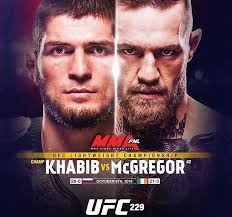Aggression is a very common behavior to have in the Ultimate Fighting Championship or otherwise known as UFC. Aggression is the physical or verbal behavior intended to hurt someone, not only in the ring but also outside of it, and we as spectators see the aggression build up before the match and sometimes even after. There are also different types of aggression such as Emotional aggression which refers to aggression with small amount of forethought or intent and that is determined primarily by impulsive emotions (Stangor, 2014). Another example would be instrumental or cognitive aggression this is the intentional and planned aggression (Stangor, 2014). Social comparison is also a very common behavior to see in the UFC. Social comparison is when an individual evaluates one’s abilities and opinions by comparing oneself to others (Social Comparison). It is important in this type of sport to look at your opponent and compare oneself to them. By doing this the athletes are able to use their strengths to attempt to beat their competitor’s weaknesses.
This year all eyes were locked in on October 6th when Conor McGregor was getting ready to fight Khabib Nurmagomedov (MMA, 2018). As many know McGregor is perceived as having very high self-confidence and made it very clear he “knew” he was going to win this fight, Khabib on the other hand was seen as the underdog. There was a lot of aggression building up to this fight. Verbally, McGregor made multiple announcements about how he knew he would win (Official, 2018). Khabib was able to use social comparison to understand why he was going to be the true winner. Khabib started wrestling at a very young age and knew that McGregor didn’t have the same advantages or talents in the wrestling aspect of fighting (Official, 2018). Khabib was able to use this advantage in the fight to take control and win. The ability to size up your competition and then view your own abilities is a key aspect when trying to win in the UFC.
Aggression is seen throughout the UFC during fights but after the actual competition is when the aggression became even more prominent, it no longer became about the sport but about the athletes own personal aggression. After Khabib had won against McGregor, Khabib jumped out of the ring and kicked one of McGregor’s trainers in the face to celebrate his win (Official, 2018). This is a very obvious example of physical aggression. There were also many instances in this match where verbally abusive and aggressive behavior was used as well.
In this match there are many prime examples of verbal and physical aggression; from McGregor verbally telling the world he was going to beat Khabib, to Khabib kicking one of McGregor’s trainers in the face after his victory. Social comparison made a large impact on the results of this match as well, in the instance of McGregor, he was unable to accurately compare himself to Khabib which resulted in his loss. Khabib, on the other hand, was able to view his own abilities and McGregor’s and make an accurate comparison. Khabib then used his own strengths to fight McGregor’s weaknesses and win the match.
This type of behavior is unsportsmanlike and should be discouraged, as of October 2018 there was disciplinary action taken and it was announced that both fighters received a suspension for ten days and half of Khabib’s payout be released and appear for a hearing in December (MMA, 2018). It is important that poor and unsportsmanlike behavior be called-out and offenders are held accountable. The sports world in general, needs to be a role model for society and for the youth of society to take part in sports that are ethical and have boundaries.
-Leigha Kosakowski
Sources
MMA Fighting Newswire. (2018, October 07). Khabib Nurmagomedov vs. Conor McGregor full fight video highlights. Retrieved from https://www.mmafighting.com/2018/10/7/17946604/khabib-nurmagomedov-vs-conor-mcgregor-full-fight-video-highlights-ufc-229’
Official, W. (2018, October 18). Khabib Vc Conor McGregor Highlights. Retrieved from https://www.youtube.com/watch?v=KmzMPcdmnQI.
Social Comparison Theory. (n.d.). Retrieved from https://www.psychologytoday.com/us/basics/social-comparison-theory
Stangor, C. (2014, September 26). Principles of Social Psychology – 1st International Edition. Retrieved from https://opentextbc.ca/socialpsychology/chapter/defining-aggression/



